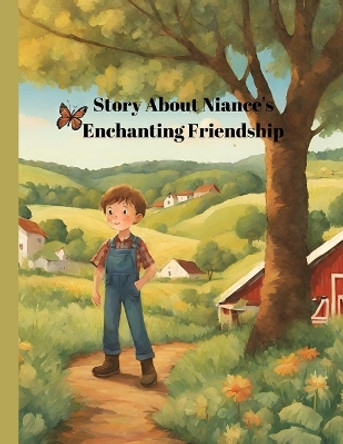Description
A dizzying, gripping, and beautiful journey into the world of medicine and mortality-not just its complex emotional universe, but the political realities that structure it too... including, most urgently, the imaginations of a younger generation still fighting for an alternative future. -- Jack Shenker, author of The Egyptians: A Radical Story I would, without hesitation, deem Lissa required reading for anyone interested in the Egyptian revolution, but also for anyone interested in the complexities of being human and being alive in the twenty-first century. -- Ganzeer, Egyptian revolutionary street artist/author ...a spectacular way to inaugurate the breakthrough ethnoGRAPHIC series. Lissa offers a compelling entry into how issues of illness, mortality, and decisions around them are always shaped in the particulars of history and politics. Bravo! -- Faye Ginsburg, Ph.D., Director of the Center for Media, Culture, and History at New York University ...brilliant storytelling and stunning scholarship. -- Anne Fausto-Sterling, Ph.D., author of Sexing the Body Filled with vivid characters who cry, bleed, and hope, Lissa offers an intimate and powerful understanding of contemporary medicine and politics. -- Emmanuel Guibert, author of The Photographer Lissa, a brilliant fictional account of organ failure, genetic testing, and organ transplantation, is portrayed in manga-like images. Human encounters, political events, and, above all, memories explode in time and space across the pages. A must-read for our alarming times. -- Margaret Lock, Ph.D., author of Twice Dead: Organ Transplants and the Reinvention of Death ...a tangled and controversial journey through injustice and disease, infused with a healthy dose of revolutionary spirit along the way. -- Mohamed and Haitham Raafat El-seht, Twins Cartoon A visually compelling and sensitively presented work that demonstrates how juxtaposing sequential art with narrative can render extremely complex global processes and phenomena into a gripping human story. -- Benjamin Dix, SOAS, University of London, Director, PositiveNegatives (positivenegatives.org) So accessible is the image/text language of comics that it frequently manages to cross all sorts of borders: national, cultural, and generational. Lissa utilizes the medium to the fullest, weaving the complexities of friendship, illness, and faith together in a way that bridges cultures and dispels misconceptions, while offering a narrative that engages readers to the very end. -- Lina Ghaibeh, Professor of Animation and Comics, American University of Beirut
About the Author
Coleman Nye is Assistant Professor of Gender, Sexuality, and Women's Studies at Simon Fraser University. Sherine Hamdy is Associate Professor of Anthropology at University of California, Irvine.
Reviews
"Revolution is as intimate as family and as mammoth as regime change in this graphic novel focused on the 2011 Tahrir Square demonstrations. This is the book's greatest strength: its belief in decency, even amidst violence and trauma. Its hopeful mood is mirrored by the book's rounded, flowing visuals: Bandages flutter like hair ribbons, water sluices down Anna's surgical scars, and Layla's eyes are wide as she tends to the grievously wounded. This is a chronicle of conflict, to be sure, but it is also a tribute to persistence of friendship and the power of a people united." -- Publishers Weekly
"Whether you read Lissa to educate yourself about health issues or research methods, or you just want to find out what happens to Layla and Anna, this graphic novel shows the huge and still untapped potential of comics for use in medicine and global health." -- The Lancet
"In Lissa, Hamdy, Nye, their artists Bao, Brewer, and Parenteau show us how we can collaboratively transform anthropology's ways of seeing and communicating depth and nuance in our ethnographies. As the first publication in the new ethnoGRAPHIC series from University of Toronto Press, Lissa sets a high bar and positive tone for what we can expect from this series. Like most great books, Lissa allows the reader to bring different meanings and needs to the book, engaging them in multiple conversations that explore the ways in which we are connected." -- Somatosphere
"The complexity of the various ethical and medical dilemmas gives the work depth and pathos without making the arguments appear didactic. It is indeed the ethnographic research-the minor characters and their voices-that give the book its special strength." -- Parismita Singh, graphic novelist, Medical Anthropology Quarterly
"With the University of Toronto's imprimatur and its ethnoGRAPHIC series, surely there are no more excuses not to expand what counts as professional, promotion-worthy ethnography. And Lissa offers a fantastic model of how to proceed. Congratulations to its visionary authors and editors." -- Lochlann Jain, Medical Anthropology Quarterly
"...offers slices of contrasting Egyptian and American biomedicines and uses the characters' dilemmas to pry open the contradictions within and between these medical systems." -- Stacy Leigh Pigg, Medical Anthropology Quarterly
Lissa is an eminently teachable text, and it was clearly designed with the classroom in mind. -- Christine Sargent, Anthropology Book Forum
"The storytelling in LISSA is innovative in the sense that it shows people's lives without resorting to broad stroke generalizations. The novel also nicely covers key aspects of cyber-activism, social media and texting - tools that were instrumental in communicating during the revolution." -- Eduard Cousin
"Through its story of intercultural friendship and its backstory of international and interdisciplinary collaboration, Lissa invites us to take an unusual - fictional, graphic- and highly original path to the heart of the ethnographic encounter. It is a journey I am excited to take with my students, and I look forward to seeing the next titles in the ethnographic series." -- Martha Radice, Dalhousie University * Anthropologica 60, 2018 *
"As the debut of a new editorial series (ethnoGRAPHIC) that aims at promoting long-form ethnographic accounts into comic form, Lissa is without a doubt an editorial break-through that helps to bring balance to an otherwise dominantly textual field." -- Kim Tondeur * Anthropos *
"Lissa intertwines academic knowledge and storytelling, Egypt and the United States, as well as the private sphere in which individuals/families make medical decisions and the public sphere in which health care systems operate, governments govern (or fail to do so), and citizens rebel against governments. The outcome, as academic and non-academic reviewers unanimously attest, is a highly informative yet readable and engrossing book." -- Dominika Ferens, University of Wroclaw * Lublin Studies in Modern Languages and Literature *
"I have nothing but admiration for this book. The story is compelling-even a page turner. Moreover, it is informative, historically and culturally situated and uplifting-or, at least, it ends on a hopeful note-teaching hard truths, or glimpses of them, in an accessible and digestible way." -- Shelly Errington, Anthropology Now
Awards
Winner of Prose Award for Cultural Anthropology and Sociology 2018 (United States). Commended for VLA Graphic Novel Diversity Award awarded by the Virginia Library Association 2019 (United States).
Book Information
ISBN 9781487593476
Author Sherine Hamdy
Format Paperback
Page Count 304
Imprint University of Toronto Press
Publisher University of Toronto Press
Series ethnoGRAPHIC
Weight(grams) 420g
Dimensions(mm) 229mm * 152mm * 30mm
Details
Subtitle: |
A Story about Medical Promise, Friendship, and Revolution |
Series: |
ethnoGRAPHIC |
Imprint: |
University of Toronto Press |









